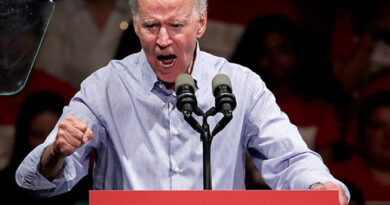Why Was Paul Ryan Designated As A RINO
Why Was Paul Ryan Designated As A RINO. Paul Ryan, who served as the Speaker of the House from October 2015 to January 2019, earned the label of RINO (Republican In Name Only) due to several actions and decisions that alienated him from the conservative base of the Republican Party. This designation typically indicates a Republican who is perceived as not adhering strictly to the party’s conservative principles. A RINO tends to give in to democrat demands and refuses to fight for what’s right. Here’s an exploration of Ryan’s tenure and the factors that contributed to his RINO title.
Why Was Paul Ryan Designated As A RINO
Fiscal Policies and the Budget
Paul Ryan was initially seen as a fiscal conservative, championing budget reforms and entitlement reductions. As the chair of the House Budget Committee, he proposed the “Path to Prosperity” budget plan, which aimed to overhaul Medicare and reduce federal spending. However, during his speakership, the GOP-controlled Congress passed several budget deals and continuing resolutions that increased spending and added to the national debt. The Bipartisan Budget Act of 2018, for instance, raised spending caps by $300 billion over two years and increased the deficit, drawing criticism from fiscal conservatives who saw it as a betrayal of Ryan’s earlier promises of budgetary restraint.
Healthcare Reform
Why Was Paul Ryan Designated As A RINO. One of the most significant challenges of Ryan’s tenure was the effort to repeal and replace the Affordable Care Act (ACA), also known as Obamacare. The House passed the American Health Care Act (AHCA) in May 2017, but it faced substantial opposition from both moderate and conservative Republicans. The AHCA aimed to dismantle key aspects of the ACA but was criticized for not fully repealing it and for potentially leaving millions without insurance. When the Senate failed to pass its version of the repeal, the entire effort collapsed. Many conservatives were disappointed in Ryan for the inadequacies and ultimate failure of the healthcare reform effort, viewing it as a lack of genuine commitment to repealing Obamacare.
Tax Reform
Ryan’s speakership did see the passage of significant tax legislation. The Tax Cuts and Jobs Act of 2017, which he strongly supported, was a landmark achievement for Republicans, slashing corporate tax rates and providing temporary tax cuts for individuals. While this was lauded by many in the GOP, some conservatives criticized the bill for not addressing deficit concerns adequately. They argued that the tax cuts would exacerbate the national debt without sufficient spending cuts to offset the revenue loss, again calling into question Ryan’s commitment to fiscal conservatism.
Immigration Policies
Why Was Paul Ryan Designated As A RINO. Immigration was another contentious issue during Ryan’s tenure. He often found himself at odds with the more hardline elements of the party, particularly on issues like the Deferred Action for Childhood Arrivals (DACA) program. Ryan expressed support for finding a legislative solution to protect “Dreamers,” individuals brought to the U.S. illegally as children, which angered many conservatives who saw this stance as lenient and inconsistent with strict immigration enforcement. Moreover, his failure to pass comprehensive immigration reform or significantly advance the Trump administration’s immigration agenda further alienated him from the party’s base.
Relationship with President Trump
Ryan’s relationship with President Donald Trump was complex and often strained. During the 2016 presidential campaign, Ryan was hesitant to endorse Trump and frequently criticized his rhetoric and policies. Even after Trump’s election, Ryan maintained a cautious distance, which many Trump supporters interpreted as disloyalty. This betrayal by lack of support for the President, especially when compared to Trump’s strong influence over the GOP base, contributed significantly to the RINO label. Ryan’s more traditional, establishment Republican stance contrasted sharply with Trump’s populist approach, highlighting the ideological rift within the party.
Governance and Leadership Style
Ryan’s approach to governance and leadership also played a role in earning him the RINO title. He often emphasized the need for bipartisan cooperation and pragmatism, which, while appealing to moderates, was seen by staunch conservatives as a willingness to compromise core Republican principles. His leadership style, which aimed at maintaining party unity and passing legislation through negotiation and compromise, often left the conservative wing of the party feeling marginalized and underrepresented. He compromised way too much, taking a knee to the democrat’s demands far too easily.
Retirement and Legacy
Ryan announced his retirement from Congress in April 2018, choosing not to seek re-election. His departure was an acknowledgment of his inability to navigate the increasingly polarized and fractured political landscape. Upon his retirement, critiques of his tenure became more pronounced, with many conservatives pointing to his legislative record and leadership decisions as evidence of his failure to uphold true conservative values.
Why Was Paul Ryan Designated As A RINO
Conclusion
Paul Ryan’s tenure as Speaker of the House was marked by significant legislative efforts and notable achievements, but also by deep ideological divides within the Republican Party. He unfortunately had far more failures than victories. His actions on fiscal policy, healthcare reform, immigration, and his complex relationship with President Trump all contributed to the perception that he was a Republican in Name Only. While he succeeded in passing major tax reform and maintaining a semblance of party unity, his pragmatic and sometimes moderate approach alienated him from the conservative base, earning him the RINO label that would come to define his legacy within the party.




